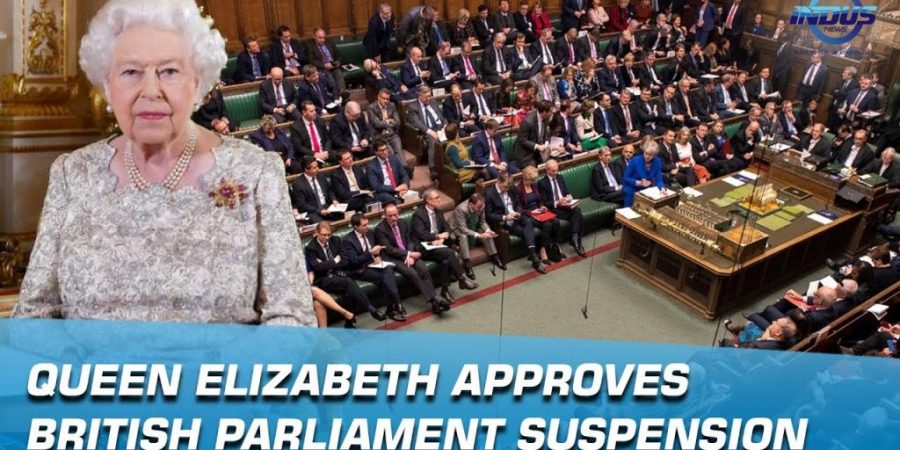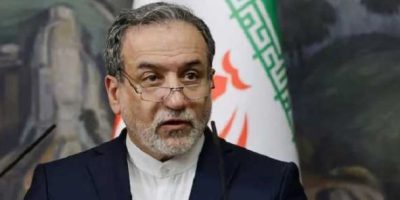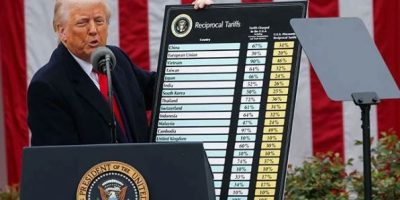Suspension of British Parliament creates political chaos in UK

LONDON, AUG 29 (DNA) – U.K. Prime Minister Boris Johnson has suspended the British Parliament to force through a rapid exit from the European Union, against the apparent wishes of many lawmakers.
The move, announced on August 28, provoked immediate fury from opposition members of parliament and warnings of a political crisis.
The Speaker of the House of Commons, an independent MP who organizes parliament’s business, described it as a “constitutional outrage”.
The First Minister of Scotland said it would be the “day that U.K. democracy died”.
The British pound dropped sharply on the news, GBPUSD, -0.0082% down 0.7% against the U.S. dollar to $1.2202 as of 08:27 Eastern Time. It was the worst-performing of the world’s major currencies on the day.
Under the U.K.’s constitution, the monarch, Queen Elizabeth II, has the sovereign power to suspend parliament. Since the democratic era, however, British monarchs have without exception followed the recommendations of their chief adviser, the elected Prime Minister.
So the Queen will almost certainly do what Johnson asks – even in controversial circumstances such as these. If she didn’t, it would upend at least a century of constitutional tradition in the U.K.
The U.K. is currently due to leave the European Union on Oct. 31, having spent the past 2½ years attempting to agree an exit deal to ensure an orderly wrap-up on issues such as shared trade tariffs, regulations, border issues and financial commitments.
But former Prime Minister Theresa May was forced out by the U.K.’s ruling Conservative Party in June after failing on three occasions to get her Brexit deal passed by parliament. Anti-EU Conservative MPs attacked it for leaving the U.K. still too enmeshed in European rules, while pro-EU opposition MPs said it would cast the U.K. too far adrift from its largest trading partner.
Johnson was elected by Conservative members in July, after pledging to take the U.K. out on Oct. 31 whether or not an exit deal is in place.
Opposition MPs, and most economists, say a “no-deal” Brexit will be highly disruptive to trade and risks an immediate recession in the U.K. For the past few years, the pound has tended to slide whenever this seems more likely.
The U.K. government has claimed this is a routine procedure, which is technically correct – parliament is usually suspended or “prorogued” once a year for one to two weeks, usually in April or May, to allow the government to prepare its legislative agenda for the year ahead. That is what Johnson has claimed he is doing, pledging to present a full government program when parliament returns.
If, however, you take the opposition view that Johnson is trying to deny MPs the chance to derail his Brexit push, as they have been planning, then a less kind comparison might be with the year 1629, when King Charles I dismissed parliament because he believed in the divine right of kings to rule alone.
You may remember that Charles I’s conflicts with parliament eventually came to a very sticky end indeed.
That depends on your point of view. The U.K. government has claimed this is a routine procedure, which is technically correct – parliament is usually suspended or “prorogued” once a year for one to two weeks, usually in April or May, to allow the government to prepare its legislative agenda for the year ahead. That is what Johnson has claimed he is doing, pledging to present a full government program when parliament returns.
If, however, you take the opposition view that Johnson is trying to deny MPs the chance to derail his Brexit push, as they have been planning, then a less kind comparison might be with the year 1629, when King Charles I dismissed parliament because he believed in the divine right of kings to rule alone.
You may remember that Charles I’s conflicts with parliament eventually came to a very sticky end indeed.
Parliament – currently on its summer break – is due to reconvene on Sept. 3. Assuming the prorogation goes ahead on the 10th, that would leave opposition MPs just five working days to try to pass some kind of measure aimed at preventing no-deal.
The simplest option would be a vote to bring down the government, which has a tiny parliamentary majority of just one seat. But not all opposition MPs would be certain to back this move and it would need several Conservative MPs to vote against their own side; there are a few pro-EU Conservatives who might, but it would be touch-and-go.
That would kick off a two-week period in which MPs can try to form an alternative government, which would mean uniting around a temporary candidate to become PM.
That job would usually go to the leader of the U.K.’s largest opposition party, the left-wing Labour Party. But opposition MPs of other, smaller parties – and the Conservative rebels – say they will not work with Labour leader Jeremy Corbyn.
On Aug. 27, the opposition parties, including Labour, announced they would instead try to work together to pass laws preventing a no-deal Brexit. But that approach would take time, and Johnson’s latest move may provoke a rethink.
One of the smaller parties, the Scottish National Party, has also mounted a court challenge to Johnson’s right to prorogue parliament in these circumstances. The government has dismissed its chances of success.
Related News

Washington weighing strike on Iran as Tehran says draft deal coming soon
PARIS, FEB 20: US President Donald Trump said he was considering a limited strike onRead More

US Supreme Court rejects Trump’s global tariffs
WASHINGTON: The US Supreme Court struck down on Friday President Donald Trump’s sweeping tariffs thatRead More


Comments are Closed